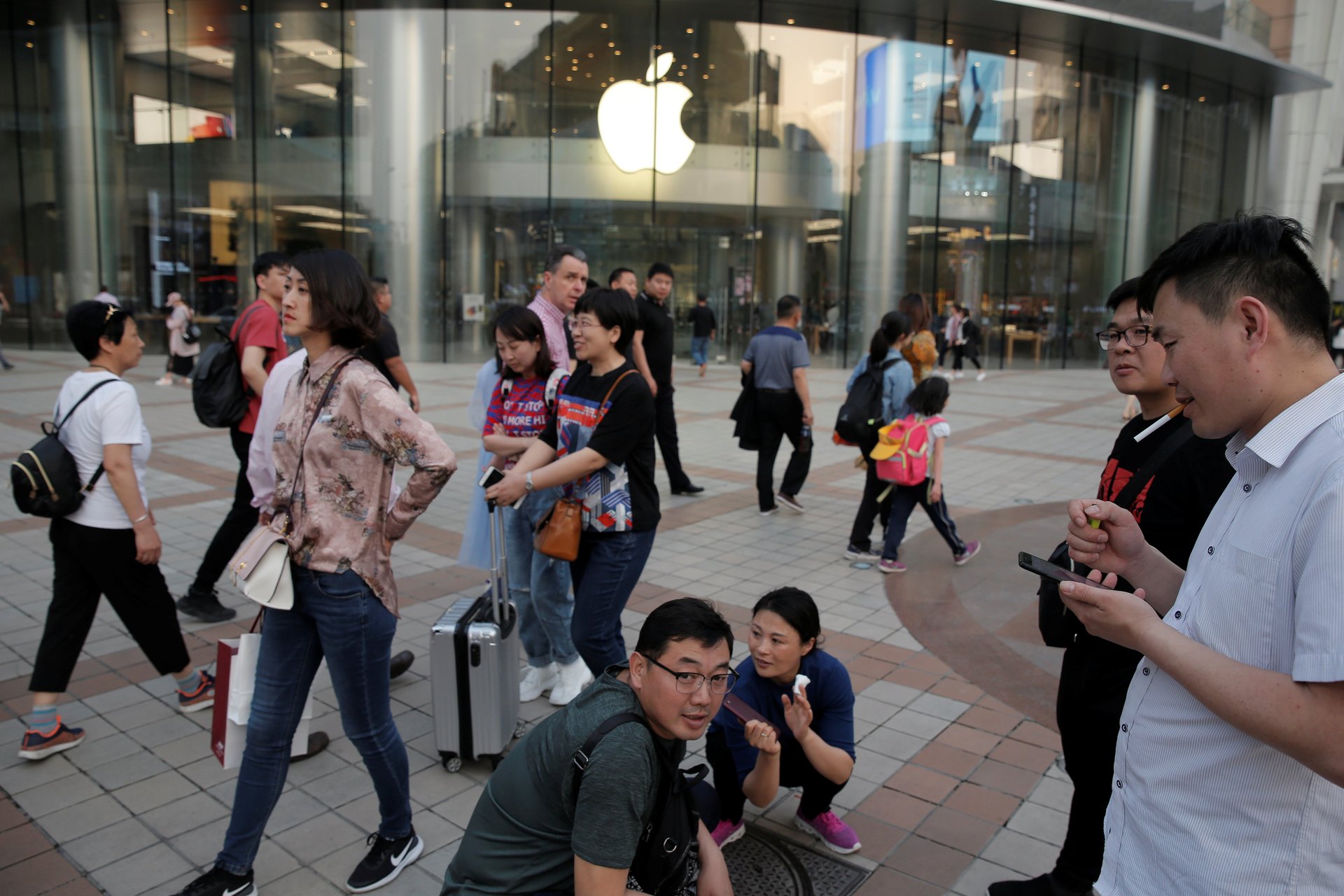Apple managed to piss off both sides of the China-Hong Kong protest divide
While NBA’s China headache is worsening, there still seems to be plenty of outrage in China left over for Apple.


While NBA’s China headache is worsening, there still seems to be plenty of outrage in China left over for Apple.
China’s state-run People’s Daily last night (Oct. 8) criticized the iPhone maker for approving a Hong Kong app that crowd-sources and maps updates about police and protester locations, as well as for returning a song “advocating Hong Kong independence” to Apple Music. While the newspaper did not name the song it was referring to, it’s likely to be “Glory to Hong Kong,” which many in the city are calling their “national” anthem. (Update, Oct. 10: Apple has pulled HKMap.live from its app store, saying it was being used to ambush police.)
“Nobody wants to drag Apple into the lingering unrest in Hong Kong. But people have reason to assume that Apple is mixing business with politics, and even illegal acts,” said the article, published under the byline Bo Lan Ping, or “calming the waves,” a pseudonym used frequently by the newspaper for commenting on Hong Kong issues in recent weeks. “Apple has to think about the consequences of its unwise and reckless decision.”
Apple did not reply to a request for comment.
Protests have been going on in Hong Kong since June, initially against a now-withdrawn extradition bill that would have allowed the city’s residents to be sent to face trial in mainland China. They now include far broader demands, including democratic elections. Along the way, companies have fallen afoul of both China’s ruling Communist Party and protesters.
Earlier, Apple caught some flak when the developer of HKmap.live tweeted that it had been rejected for inclusion in the Apple store over concerns it would promote illegal behavior, even though Apple carries apps that allow users to keep tabs on police or speed cameras elsewhere. Responses to the news, including from the outspoken Maciej Cegłowski, the developer behind the @Pinboard Twitter account, were critical of the company, which has also been facing scrutiny for removing the Taiwan flag emoji from its iPhone keyboard for users in Hong Kong and Macau.
On Oct. 4—the day the Hong Kong government used emergency powers to enact an anti-mask law, increasing fears of more intense clashes between protesters and police—the developer announced Apple had reversed itself. The app now tops the charts for most downloaded apps in Apple’s Hong Kong App Store under the travel category, prompting People’s Daily to say that “allowing a ‘poisonous’ app to be popular is a betrayal of the Chinese people.”
The “Glory to Hong Kong” song is also available again on Apple Music after being temporarily removed, possibly for copyright issues, in late September. Composed by a citizen calling himself “Thomas,” with the help of anonymous Hong Kong internet users, it was initially uploaded to Apple Music in mid-September.
Over the weekend, tens of thousands of people on social platform Weibo criticized the US tech giant for making an app “for rioters” available, followed by the criticism in the People’s Daily yesterday.
“Has Apple thought the matter through? Don’t let a ‘good apple’ rot gradually!” said WeChat user Bond under the story, a comment that was upvoted more than 23,000 times. Another comment from user Zhang Xiao Qianer,” upvoted over 33,000 times, praised Chinese smartphone maker Huawei, saying its phones were far superior to Apple’s iPhone.
China’s most widely read newspaper, the People’s Daily not only helps the Party convey its views, but is also actively involved in weaponizing China’s public opinion (link in Chinese). An opinion piece on Sunday added fuel to the outrage in the country at the NBA after Daryl Morey, general manager of the Houston Rockets, tweeted support for the protests. The paper said the Rockets team was “two-faced,” trying to make money from China while insulting it. More than 10 Chinese companies, including several US-listed ones, have since announced they are ending partnerships or sponsorships with the basketball league.
Earlier the paper published opinion pieces critical of Hong Kong flagship airline Cathay Pacific for being too supportive of staff participation in the protests. A number of employees have been dismissed by the airline.
Apple is already facing a tough situation in China, where it’s lost market share for smartphones to domestic rivals like Huawei, amid an earlier surge of patriotism around the Chinese tech giant. A fresh wave of patriotism could dampen the hopes it has for its newly launched iPhone 11 series.